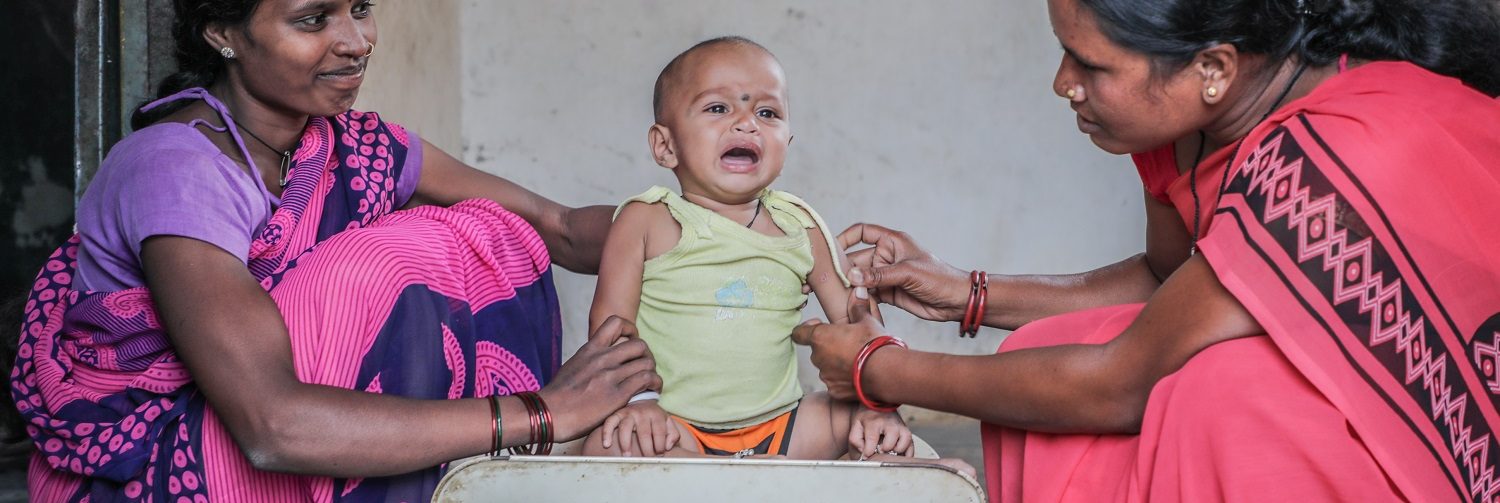Arunachal Pradesh, situated in the north-east of India, accounts for 2.5 percent of the area of the country and includes 21 districts. The state is home to more than 1 million people (0.08 percent of the population of India) of which 65.4 percent are literate. Arunachal Pradesh has a sex ratio of 938 females per 1,000 males (Census of India 2011). The state is largely forested and is known to be the richest bio-geographical province of the Himalayan zone (Government of Arunachal Pradesh 2017).
- 2022: Read our State Nutrition Profile for Arunachal Pradesh (NFHS-3 (2005-2006), 4(2015-16) & 5 (2019-2020), a that describes the trends for a set of key nutrition and health outcomes, determinants, and coverage of interventions from 2006 to 2020. The findings are based on estimates from unit-level data and/or data from national and state reports for NFHS-3 (2005-2006) and NFHS-4 (2015-2016), and data from state factsheets and reports for NFHS-5 (2019-2021). In addition to standard prevalence-based analyses, this State Nutrition Profile includes headcount-based analyses aligned to POSHAN Abhiyaan’s goals.
- 2018: For deeper insights into the coverage of key nutrition and health interventions in the state, with district-wise status, read our Coverage Data Note (NFHS-4 (2015-16)) that describes the coverage of a set of key nutrition and health interventions and highlights the key areas of action to improve nutrition in Arunachal Pradesh.
- 2017: A Policy Note ((NFHS)-3 (2005-06) & 4 (2015-16)) to examine the trends in undernutrition in Arunachal Pradesh, regional variability in the major determinants of nutrition and the coverage of key nutrition and health interventions.
For a deeper view of malnutrition and its multiple determinants in Arunachal Pradesh’s districts, please access District Nutrition Profiles (DNPs) for each district below.
District |
Download PDF (NFHS-4) |
Download PDF (NFHS-4 & 5) |
|
| Anjaw | English | English | |
| Changiang | English | English | |
| Dibang Valley | English | English | |
| East Kameng | English | English | |
| East Siang | English | English | |
| Kra Daadi | NA | English | |
| Kurung Kumey | English | English | |
| Lohit | English | English | |
| Longding | NA | English | |
| Lower Dibang Valley | English | English | |
| Lower Subansiri | English | English | |
| Namsai | NA | English | |
| Papum Pare | English | English | |
| Siang | NA | English | |
| Tawang | English | English | |
| Tirap | English | English | |
| Upper Siang | English | English | |
| Upper Subansiri | English | English | |
| West Kameng | English | English | |
| West Siang | English | English |
This Data Note describes the trends for a set of key nutrition and health outcomes, determinants, and coverage of interventions. The
It is crucial to understand the coverage of nutrition and health interventions to gain further insights into their effectiveness and
Arunachal Pradesh, situated in the north-east of India, accounts for 2.5 percent of the area of the country and includes

